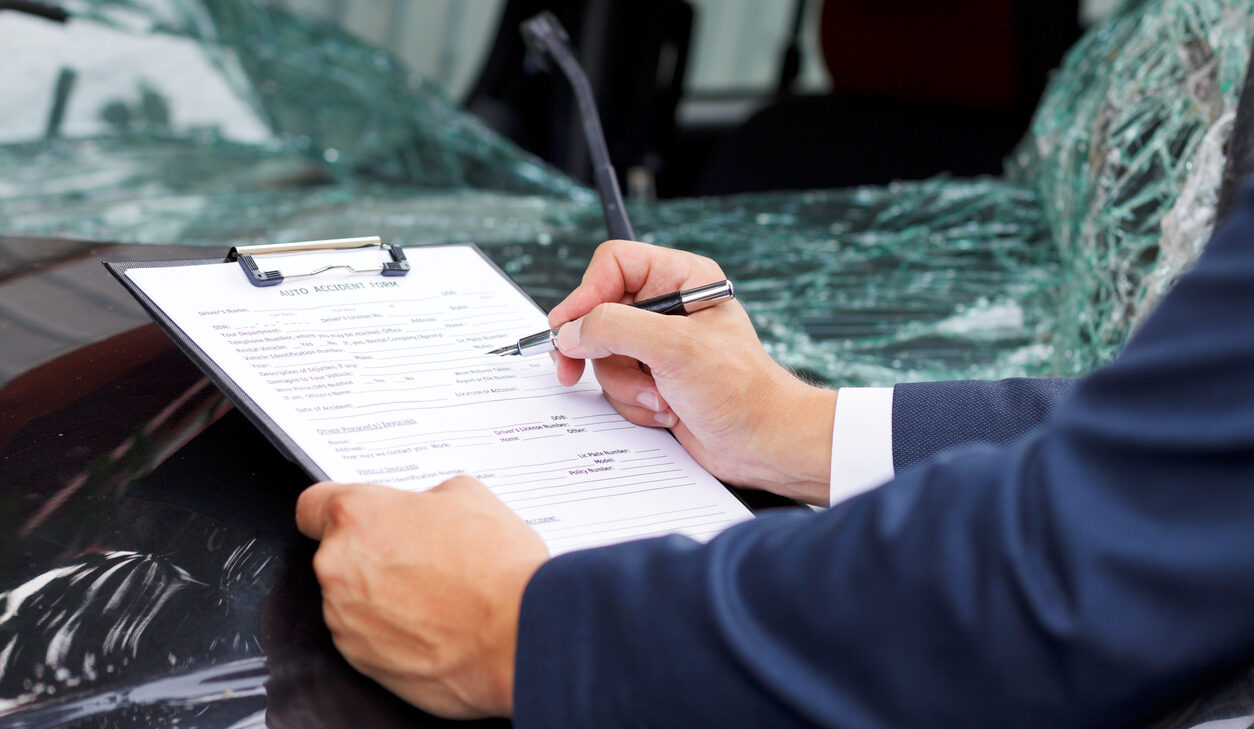Car Accident Compensation for PTSD & Psychological Injuries
When most people think of car accident claims, physical injuries like broken bones or whiplash usually come to mind. But the reality is that car accidents can also have a devastating impact on a person’s mental health.
If you’ve developed Post-Traumatic Stress Disorder (PTSD) or another psychological condition after a crash, you may be entitled to significant compensation. A successful car accident claim covers more than just medical expenses — you could receive compensation for lost income, ongoing therapy, professional care, and even pain and suffering.
In this guide, we’ll break down everything you need to know about claiming compensation for PTSD after a car accident, including what conditions are covered, how the claims process works, and how much compensation you could get.
Prefer to speak to someone directly? Our experienced car accident lawyers are just a phone call away — and your first consultation is completely free.

Am I eligible for PTSD car accident compensation?
If you’ve developed PTSD or another psychological injury after a road accident, you may be able to make a compensation claim. This applies to a wide range of people, including:
- Drivers and passengers involved in a crash.
- Cyclists, motorcyclists, or pedestrians struck by a vehicle.
- Anyone injured while using public transport.
- Parents of children hurt in road accidents.
- Witnesses to a fatal crash.
- Family members of someone who passed away in an accident.
No matter your circumstances, it’s worth speaking with a lawyer. We’ll listen to your story, explain your options in plain English, and help you understand exactly where you stand.
Start your free online claim check
Find out if you’re eligible for a car accident PTSD claim today.
What psychological injuries can I claim for?
Though this article mostly uses the term ‘PTSD’, you can actually claim for any recognised psychological injury that results from a car accident. In our experience, these most commonly include:
- PTSD.
- Anxiety disorders.
- Major depressive disorder.
- Adjustment disorder.
- Acute stress disorder.
- Panic attacks.
- Sleep disorders (like insomnia or nightmares related to the crash).
These are just a few examples; there are many more situations where you can get compensation after a car accident.
However, stress, shock, or feeling sad after a car accident isn’t usually enough — you must be diagnosed with a recognised psychological injury.
That said, if you’re still feeling the effects weeks or months later (even if the symptoms seem mild), it’s worth reaching out. Our car accident lawyers understand how these injuries work and can help you figure out your options.
What is the average PTSD car accident settlement amount?
Across Australia, there is no average PTSD accident compensation. It all depends on your personal circumstances, including:
- How your PTSD affects your ability to work or live independently.
- Whether you can return to your previous job (and what you were earning before the accident).
- Your age and future earning potential.
- Where you live, as each state has different rules.
- Whether someone else’s negligence caused the accident.
Below, you’ll find our simple payout guide, breaking down the different types of compensation you may be entitled to and how the rules work in your state.
Car accident PTSD settlement calculator
What can I claim if someone else caused the car accident?
If the car accident wasn’t your fault, you can make a Compulsory Third Party (CTP) claim — no matter which state you’re in. In NSW, it’s sometimes called a ‘green slip’ claim. These claims are made through the at-fault driver’s CTP insurer, which every registered vehicle in Australia is legally required to have.
A successful CTP claim can help cover a wide range of costs, including:
- Lost income: both past and future, if the accident has affected your ability to work.
- Care and support: from professionals or family members, especially if you need help with daily tasks or caring for dependents.
- Out-of-pocket expenses: such as medical bills, medication, and transport to appointments.
- Pain and suffering: for the emotional and physical toll of PTSD or other psychological injuries.
Unlike things like medical bills or lost wages, there’s no set dollar amount for pain and suffering. Instead, it’s assessed based on how much your injury has affected your quality of life. That means your payout can be significant — but in most states, you’ll need to meet a minimum injury threshold to qualify.
This involves having your injuries assessed by an independent medical expert to determine the long-term impact on your life. The assessor will give you a permanent impairment rating, known as either Whole Person Impairment (WPI) or Injury Scale Value (ISV), depending on your state or territory.
Generally, the higher your impairment rating, the greater your potential compensation. However, most states have limits on how much you can receive, even for serious injuries. Your lawyer will explain how this applies in your case and what to expect based on your assessment.
Scroll down to check the table for your state’s eligibility rules and compensation limits.
| State | Requirements for claiming non-economic loss | Maximum compensation for non-economic loss |
| NSW | Your injury must be assessed at over 10% WPI. | $654,000 |
| Victoria | You must have either:
• 30% WPI or
• A serious injury certificate from the Transport Accident Commission
| $663,580 |
| Queensland | You must have an ISV of 1 or higher. | $456,950 |
| South Australia | You must have an ISV of 11 or higher. | $405,780 |
| Western Australia | • Your injury must be assessed at over 5% Whole Person Impairment (WPI), and
• Your claim must be worth over $25,500. This amount increases every year with inflation.
| $485,000 |
| Tasmania | Your claim must be worth more than $7,000. This minimum value increases every year due to inflation. | No cap on damages. |
| ACT | No requirements for claiming non-economic loss. | No cap on damages. |
Keep in mind, pain and suffering is only one part of your overall PTSD car accident compensation. Your total payout can also cover lost income, medical bills, rehabilitation, ongoing care, and any other entitlements you qualify for. In many cases, you might get more compensation for future lost earnings or long-term medical needs — especially if your PTSD is severe or you earned a lot before the accident.
How much can I get if the accident was my fault?
In NSW, Victoria, Tasmania, the ACT and the Northern Territory, you can still make a CTP claim even if the accident was your fault. But if you’re in Queensland, South Australia or Western Australia, you’ll only be eligible for compensation if you can prove someone else was to blame for the crash.
If you live in a state that allows at-fault claims, you may still be entitled to basic support, including:
- Lost income: if your injuries stop you from working.
- Medical and rehab costs: including hospital visits and treatment.
- Care and support at home: whether it’s from professional carers or help from family and friends.
How do I know if my psychological injury is serious enough to make a claim?
If you’ve been diagnosed with PTSD or another psychological injury after a car accident, there’s a good chance your condition meets the threshold for a compensation claim. But even without a formal diagnosis, you may still be eligible, especially if you’re experiencing some of the following:
- Your symptoms have lasted more than a month and aren’t getting better.
- You’ve had to reduce your work hours or stop working entirely.
- Everyday life feels disrupted, whether it’s struggling to sleep, withdrawing from others, or losing interest in things you once enjoyed.
- You’ve started treatment, like therapy, counselling, or medication.
If any of this sounds familiar and you’re not sure where you stand, our lawyers are here to help. We’ll arrange an assessment with one of our trusted psychiatrists and let you know if you’re eligible for compensation — free of charge.
How to make a car crash PTSD claim
No two car crash PTSD claims are the same, and the process depends on who caused the accident and what types of compensation you’re eligible for.
If you were at fault for the accident, the claims process is relatively simple. You’ll just need to file a claim with your CTP insurer, making sure to include any supporting documents like medical reports, receipts, and payslips showing your time off work.
If someone else caused the accident, the claims process works a little differently:
When you get in touch for your free consultation, you’ll speak directly with one of our car accident lawyers who specialise in PTSD claims. It’s a confidential space where you can tell your story, talk through your injuries, and explain how the crash has affected your everyday life.
We’ll then walk you through your legal options in plain language and outline the types of compensation you may be eligible to claim. If you decide to go ahead, the same lawyer will handle your case from start to finish.
To make a successful PTSD car accident claim, you’ll need strong medical and legal evidence. In fault-based claims, that means proving both your psychological injury and that another party was legally responsible for the crash. Without clear proof, your claim may not be accepted.
That’s why we work with a trusted network of psychiatrists and accident experts across Australia. With their help, we’ll build a strong case proving your condition and directly linking it to the accident.
Your PTSD car accident lawyer will lodge a CTP claim with the at-fault driver’s insurer on your behalf. If you’re eligible for a common law damages claim, your lawyer will also begin court proceedings.
After your claim is submitted, the insurer will review it and let you know whether it’s been accepted. If approved, you’ll start receiving weekly payments without delay. But if your claim is rejected (or the insurer offers less than what your PTSD and related injuries deserve), we’ll challenge the decision and fight for a fair outcome on your behalf.
If you’re pursuing a common law claim, you’ll need to attend a pre-court mediation with the insurer. But don’t stress, your lawyer will handle the entire process. We’ll represent you at every stage of the mediation and negotiate hard to get you the best possible result.
Thanks to our decades of experience with PTSD car accident claims, most cases resolve at this stage. But if the insurer refuses to offer fair compensation, we’re fully prepared to take your claim to court and fight for what you’re owed.
Do I need a lawyer for my car accident PTSD claim?
While you’re not legally required to have a lawyer, it can make a huge difference, especially when it comes to PTSD and other psychological injury claims.
Unlike physical injuries, which can be backed up with scans or X-rays, PTSD and other psychological conditions can be harder to prove. That’s because they’re more subjective, relying on personal accounts of how the injury has impacted your life. As a result, insurers are known to challenge PTSD claims more often.
An expert car accident lawyer knows how to clearly tell your story, explain how the trauma has affected your life, and back it all up with solid evidence. At Monaco, we take the time to really understand your background, symptoms, and medical history so we can build the strongest case possible.
We also know what insurers look for and what they might use to reject your claim. By spotting and fixing potential issues early, we give your PTSD claim the best chance of being approved and getting the full compensation you deserve.
Frequently asked questions
After a car accident, PTSD can show up in different ways, but most symptoms fall into four main categories:
- Re-living the trauma: this might include flashbacks, nightmares, or intrusive thoughts that come up when something reminds you of the event.
- Avoidance: you may find yourself steering clear of people, places, or situations that bring those memories flooding back.
- Changes in mood and beliefs: feelings of guilt, shame, hopelessness, or emotional numbness can set in, making it difficult to connect with others.
- Hyperarousal: you might feel constantly on edge, have trouble sleeping, or startle easily, like you’re always in fight-or-flight mode.
If you’ve experienced a traumatic event and these signs feel familiar, you could be living with PTSD. Reaching out for professional support is a powerful first step — and there’s genuine strength in doing so. If the cost of treatment or financial pressure is holding you back, we’re here to help. Our lawyers can guide you through a PTSD compensation claim to ease the burden and support your recovery.
Each state and territory has strict time limits for lodging your PTSD car accident claim. These deadlines vary depending on where the accident occurred:
| NSW, QLD, SA, WA, TAS and NT | 3 years from the accident date |
| VIC | 6 years from the accident date |
| ACT | 13 weeks to 3 years depending on the type of claim |
If you’ve missed the official deadline to file your claim, don’t lose hope. In some cases, you could qualify for an exception that allows a late claim to proceed. These include suffering severe injuries that delayed your claim or being out of the state.
Our experienced lawyers understand the complex time limits and exceptions that apply in every state and territory. We’ve helped hundreds of clients successfully submit delayed claims by preparing detailed applications that clearly explain why the claim was late.
To make a successful PTSD claim, you’ll need to provide strong evidence showing both your condition and its impact on your life. This may include:
- Medical records: including a complete history of diagnosis and treatment, GP and specialist notes, prescriptions and mental health care plans.
- Reports from mental health professionals: detailed summaries from your psychologist or psychiatrist, a description of your symptoms and their progression.
- Personal statement: write out a personal statement about your PTSD, including an account of the trauma and an explanation of how PTSD has impacted your emotions, relationships, work, and daily life.
- Witness statements: both from people who witnessed the accident and from family, friends, or colleagues observing changes in your behaviour and mood.
- Employment and income documents: including payslips and tax returns, medical certificates related to work absences and employer letters regarding time off, reduced hours, or job loss.
You don’t have to get all of this information yourself. When you work with our expert lawyers, we’ll take care of gathering medical records, treatment reports, income documents, and anything else needed to support your claim.
We also work with a trusted network of psychiatrists and vocational experts across Australia, who can assess your condition and provide expert reports to help strengthen your case. If there are witnesses who can support your story, we’ll reach out to them too.
Yes, you can claim compensation for anxiety after a car wreck, even if the accident was minor. The main thing is whether you develop a medically recognised anxiety disorder as a direct result of the accident, not how severe the crash was physically.
Psychological injuries like anxiety or PTSD can develop after seemingly minor accidents because the impact is about how you personally experience the trauma. So, even if you escaped major physical injury, the emotional or mental impact can be serious enough to cause a diagnosed anxiety disorder.
However, not all anxiety caused by a car accident will qualify for compensation. After a crash, it’s normal to experience temporary travel anxiety, stress or anxiety while driving.
But if your symptoms persist or get worse, it’s important to see a psychiatrist or another qualified mental health professional. They can ensure you get the treatment you need and provide a formal diagnosis if you’ve developed an anxiety disorder. This formal diagnosis is key to getting compensation for anxiety after a car accident.
Yes, PTSD can be a permanent impairment if it causes lasting impacts on your ability to work or manage daily life.
If your condition is permanent, you may be entitled to two types of lump sum compensation: a CTP lump sum payment and a TPD (Total and Permanent Disability) claim. Depending on your circumstances, you might be eligible for both.
If PTSD is affecting your long-term health and income, it’s important to speak with an experienced lawyer as soon as possible. In a free consultation, we’ll take the time to understand your situation and explain your compensation options.
Lump sum CTP compensation
In some states, you can get a lump sum permanent impairment payment on top of your basic CTP benefits. This payment is in addition to any lost income or treatment expenses you may be receiving under the CTP scheme. The more severe your psychological impairment, the higher your potential payout.
To qualify, you’ll typically need to meet a minimum level of impairment. This involves having your injuries assessed by an independent medical expert. They’ll look at the overall impact of your psychological condition on your life and give you an impairment rating, known as Whole Person Impairment (WPI) or Injury Scale Value (ISV), depending on your state.
For example, in NSW, you’re entitled to a lump sum payout if you have over 10% WPI and the accident was someone else’s fault. However, if you’re ‘catastrophically injured’, you could get a lump sum payout even if you were at fault.
TPD benefits
You may be entitled to a Total and Permanent Disability (TPD) benefit through your superannuation if PTSD has made it impossible for you to return to work.
A TPD payout is a one-off lump sum designed to provide long-term financial support, and it’s separate from any car accident entitlements. The amount you’re eligible to receive depends on your super fund and the specific terms of your insurance policy.
If you’re unsure whether your PTSD qualifies as a permanent disability, we can help. Our lawyers will arrange an independent psychiatric assessment and outline exactly what types of compensation you may qualify for.
If you’ve lost a loved one in a car accident, the emotional and financial impact can be devastating. For many people, this traumatic experience can trigger conditions such as PTSD, anxiety, or depression.
If you’ve developed a recognised psychological condition after losing a loved one, you may be entitled to make a nervous shock claim. To qualify, you’ll need a formal diagnosis from a qualified mental health professional confirming that your condition was directly caused by your loved one’s passing.
A successful claim can cover:
- Treatment costs (e.g. therapy, psychiatry, medication).
- Lost wages due to time off work.
- Pain and suffering.
- Support for the long-term impact on your life and health.
In addition to your nervous shock claim, you may also be entitled to two other types of compensation:
- Dependency claims: if the person who passed away provided you with financial support. These claims are designed to compensate family members who relied on the deceased’s income for day-to-day living.
- Loss of services claims: if your loved one regularly helped with unpaid domestic tasks, such as cooking, cleaning, child care, or home maintenance.
If you’re struggling after losing someone in a car accident, starting a compensation claim may feel incredibly daunting to stressful. That’s where our lawyers can assist.
We have decades of experience handling car accident PTSD claims across Australia and can guide you through the process with expertise and empathy. Contact us today for a free, confidential consultation. We’ll help you understand your rights and secure the compensation you deserve.



